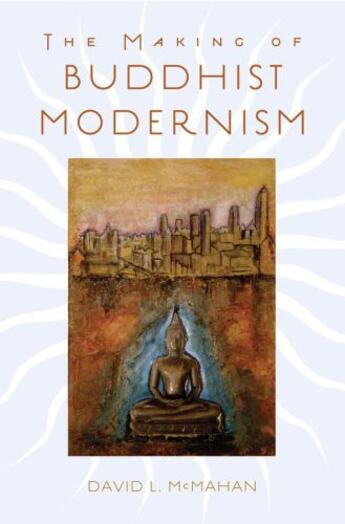Merci à toutes et à tous pour cette aventure collective
Passionné(e) de lecture ? Inscrivez-vous
gratuitement ou connectez-vous pour rejoindre la
communauté et bénéficier de toutes les fonctionnalités du site !

A great deal of Buddhist literature and scholarly writing about Buddhism of the past 150 years reflects, and indeed constructs, a historically unique modern Buddhism, even while purporting to represent ancient tradition, timeless teaching, or the "essentials" of Buddhism. This literature, Asian as well as Western, weaves together the strands of different traditions to create a novel hybrid that brings Buddhism into alignment with many of the ideologies and sensibilities of the post-Enlightenment West.
In this book, David McMahan charts the development of this "Buddhist modernism." McMahan examines and analyzes a wide range of popular and scholarly writings produced by Buddhists around the globe. He focuses on ideological and imaginative encounters between Buddhism and modernity, for example in the realms of science, mythology, literature, art, psychology, and religious pluralism. He shows how certain themes cut across cultural and geographical contexts, and how this form of Buddhism has been created by multiple agents in a variety of times and places. His position is critical but empathetic: while he presents Buddhist modernism as a construction of numerous parties with varying interests, he does not reduce it to a mistake, a misrepresentation, or fabrication. Rather, he presents it as a complex historical process constituted by a variety of responses -- sometimes trivial, often profound -- to some of the most important concerns of the modern era.
Il n'y a pas encore de discussion sur ce livre
Soyez le premier à en lancer une !

Merci à toutes et à tous pour cette aventure collective

Lara entame un stage en psychiatrie d’addictologie, en vue d’ouvrir ensuite une structure d’accueil pour jeunes en situation d’addiction au numérique...

Un douloureux passage à l'âge adulte, entre sensibilité et horreur...

Blanche vient de perdre son mari, Pierre, son autre elle-même. Un jour, elle rencontre Jules, un vieil homme amoureux des fleurs...